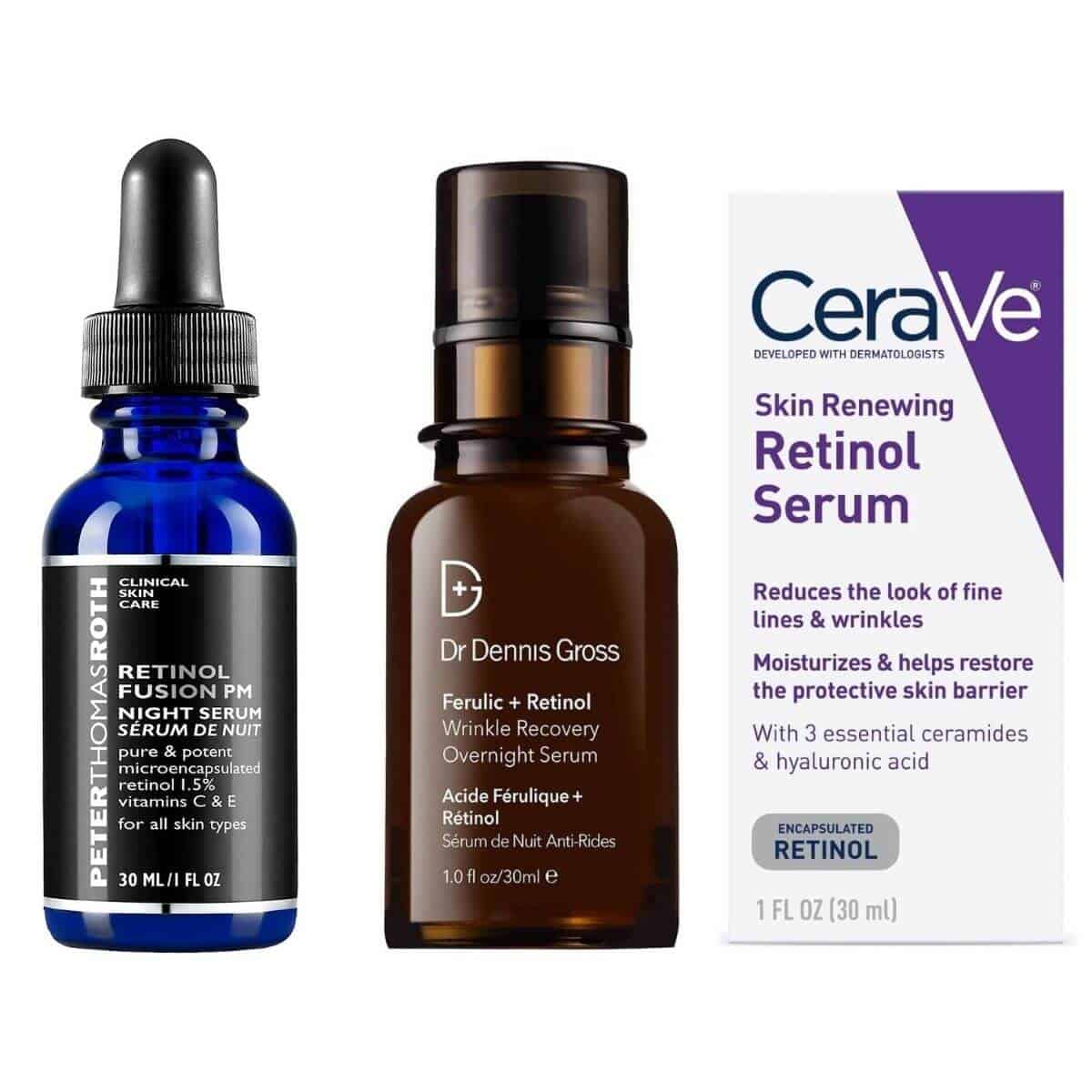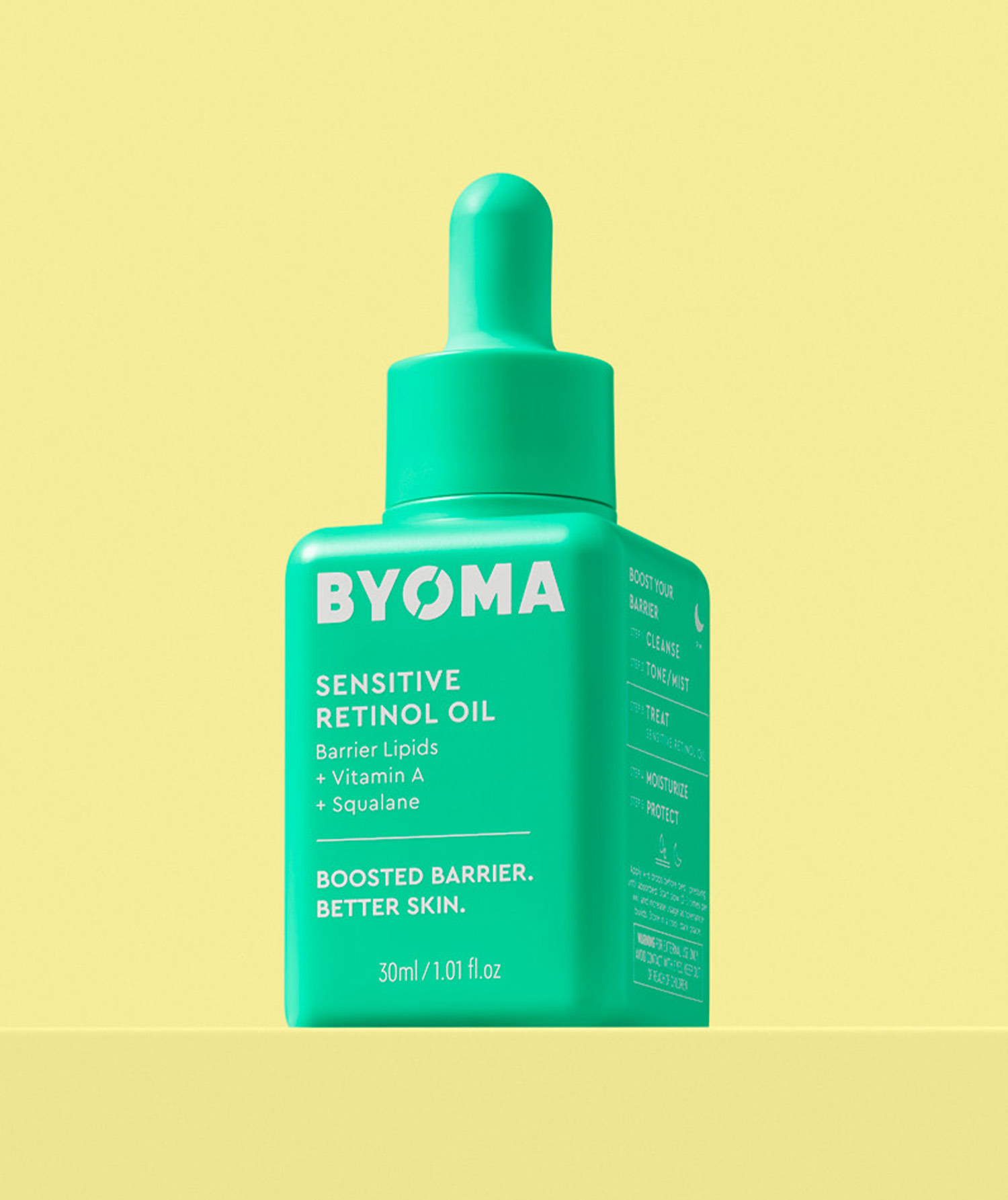Alright, listen up, skincare enthusiasts! If you're here, chances are you've heard the buzz about retinol but are still scratching your head trying to figure out what it really is and why everyone's raving about it. Let's break it down for ya. Retinol is not just another skincare fad—it's a game-changer when it comes to anti-aging, brightening, and smoothing your skin. Yep, it’s the real deal, folks. But hold up, not all retinol is created equal. So, buckle up as we dive deep into what makes a good retinol and how you can find the perfect one for your skin.
Now, let’s get real for a sec. Retinol has been around for decades, and it’s not going anywhere anytime soon. It’s one of the most researched and scientifically backed skincare ingredients out there. Whether you’re dealing with fine lines, dark spots, or just want that glow-up, retinol’s got your back. But before you go grabbing any old bottle off the shelf, you need to know what to look for in a good retinol. Stick around, because we’re about to spill all the tea.
And hey, don’t worry if you’re new to this whole retinol thing. We’ll walk you through everything from the basics to advanced tips, so by the end of this, you’ll be a retinol pro. Ready? Let’s get started!
Read also:Ariana Biermann The Rising Star Redefining Hollywoods Landscape
Understanding Retinol: The Skincare Powerhouse
Alright, let’s start with the basics. What exactly is retinol? Simply put, retinol is a form of vitamin A that works its magic by speeding up cell turnover and stimulating collagen production. Translation? It helps your skin look fresher, smoother, and younger. But here’s the thing—it’s not just about anti-aging. Retinol can tackle a whole range of skin concerns, from uneven texture to dullness.
Now, here’s the kicker: retinol isn’t just one thing. There are different types of retinoids, and they vary in strength and how they work. Over-the-counter retinols are milder compared to prescription-strength ones, but they’re still super effective if used correctly. The key is finding the right formulation for your skin type and concerns.
And oh, did we mention retinol is a bit of a diva? It’s powerful, yes, but it can also be a bit finicky. That’s why understanding how it works and how to incorporate it into your routine is crucial. Stick around, and we’ll cover all the ins and outs.
Why Retinol is a Must-Have in Your Skincare Routine
So, why all the hype? Well, retinol is like the Swiss Army knife of skincare. It does a little bit of everything, and it does it well. Here’s a quick rundown of what retinol can do for your skin:
- Reduces fine lines and wrinkles by boosting collagen production
- Improves skin texture and tone for a smoother, more even complexion
- Fades dark spots and hyperpigmentation for brighter skin
- Unclogs pores and reduces acne breakouts
- Increases skin elasticity for a more youthful appearance
And that’s not all! Retinol also helps with UV damage repair, which is a big deal if you’ve been slacking on the sunscreen (but hey, no judgment here). Basically, it’s the ingredient that checks all the boxes when it comes to anti-aging and overall skin health.
What Makes a Good Retinol?
Not all retinols are created equal, so how do you know what to look for? Here’s the lowdown on what makes a good retinol stand out:
Read also:Unveiling The Rise Of Sade Robinson A Deep Dive Into Her Inspiring Journey
1. Strength: Retinol comes in different concentrations, and the strength you need depends on your skin type and concerns. Start with a lower concentration if you’re new to retinol, and gradually increase as your skin builds tolerance.
2. Stability: Retinol can degrade when exposed to light and air, so look for products in opaque, airtight packaging to ensure maximum effectiveness.
3. Formulation: A good retinol should be paired with hydrating and soothing ingredients to minimize irritation. Look for formulations that include hyaluronic acid, ceramides, or niacinamide.
4. Delivery System: Some retinols come in encapsulated forms, which help release the active ingredient gradually and reduce the risk of irritation. This is especially great for sensitive skin types.
Best Types of Retinol for Different Skin Types
Now, let’s break it down by skin type, because not everyone’s skin reacts the same way to retinol. Here’s what works best for each:
- Oily Skin: Go for lightweight, water-based formulations to avoid clogging pores.
- Dry Skin: Opt for cream-based formulas with added moisturizers to prevent dryness and flakiness.
- Sensitive Skin: Start with gentle, encapsulated retinols or retinol alternatives like bakuchiol.
- Combination Skin: Look for balanced formulations that address both oiliness and dryness.
How to Incorporate Retinol into Your Routine
Okay, so you’ve found the perfect retinol, but now what? Here’s how to incorporate it into your skincare routine without causing chaos:
Step 1: Start Slow: Use retinol 1-2 times a week initially to let your skin adjust. Gradually increase frequency as your skin becomes more tolerant.
Step 2: Layer Properly: Always apply retinol on clean, slightly damp skin to avoid irritation. Follow with a moisturizer to lock in hydration.
Step 3: Protect Your Skin: Retinol increases sun sensitivity, so always wear sunscreen during the day to avoid damage.
Tips for Minimizing Retinol Irritation
Irritation is one of the biggest concerns when starting retinol, but it’s totally manageable. Here are some tips to keep your skin happy:
- Use a lower concentration if your skin feels too sensitive.
- Layer with a moisturizer to create a protective barrier.
- Take breaks if your skin feels overly dry or irritated.
Top Retinol Products to Try
Now that you know what to look for, here are some of the best retinol products on the market:
Over-the-Counter Retinols
- The Ordinary Granactive Retinoid 2% Emulsion: A budget-friendly option with a gentle, water-based formula.
- RoC Retinol Correxion Deep Wrinkle Night Cream: A classic drugstore favorite that delivers visible results.
- CeraVe Retinol Serum: Packed with hydrating ingredients to keep skin balanced and nourished.
Prescription Retinoids
- Tretinoin: The gold standard for prescription retinoids, known for its potency and effectiveness.
- Tazorac: A stronger option for more severe skin concerns like acne and sun damage.
Common Myths About Retinol
There’s a lot of misinformation floating around about retinol, so let’s debunk some of the most common myths:
Myth 1: Retinol is Only for Anti-Aging: Nope! Retinol can help with a wide range of skin concerns, from acne to dark spots.
Myth 2: Retinol is Too Harsh for Sensitive Skin: While it can be irritating at first, there are gentle formulations and alternatives like bakuchiol that work wonders for sensitive skin.
Myth 3: You Can’t Use Retinol During the Day: While it’s best used at night, some formulations are designed to be safe for daytime use as long as you wear sunscreen.
Scientific Backing for Retinol
So, why should you trust retinol? Because it’s backed by science, baby! Studies have consistently shown that retinol is effective in improving skin texture, reducing wrinkles, and boosting collagen production. In fact, it’s one of the few skincare ingredients that has been extensively researched and proven to work.
According to a study published in the Journal of Investigative Dermatology, retinol significantly improves skin elasticity and reduces the appearance of fine lines after just 12 weeks of use. That’s some serious results, folks!
Final Thoughts: Is Retinol Right for You?
Alright, let’s wrap this up. Retinol is a powerhouse ingredient that can transform your skin, but it’s not a one-size-fits-all solution. The key is finding the right formulation for your skin type and concerns and incorporating it into your routine gradually.
Remember, skincare is a journey, not a destination. Don’t be afraid to experiment and find what works best for you. And hey, if you’re ever in doubt, consult a dermatologist—they’re like the Yoda of skincare.
So, what are you waiting for? Dive into the world of retinol and get ready to glow. And don’t forget to share your thoughts, leave a comment, or check out our other articles for more skincare tips. Your skin will thank you!
Table of Contents
- Understanding Retinol: The Skincare Powerhouse
- Why Retinol is a Must-Have in Your Skincare Routine
- What Makes a Good Retinol?
- Best Types of Retinol for Different Skin Types
- How to Incorporate Retinol into Your Routine
- Tips for Minimizing Retinol Irritation
- Top Retinol Products to Try
- Common Myths About Retinol
- Scientific Backing for Retinol
- Final Thoughts: Is Retinol Right for You?


